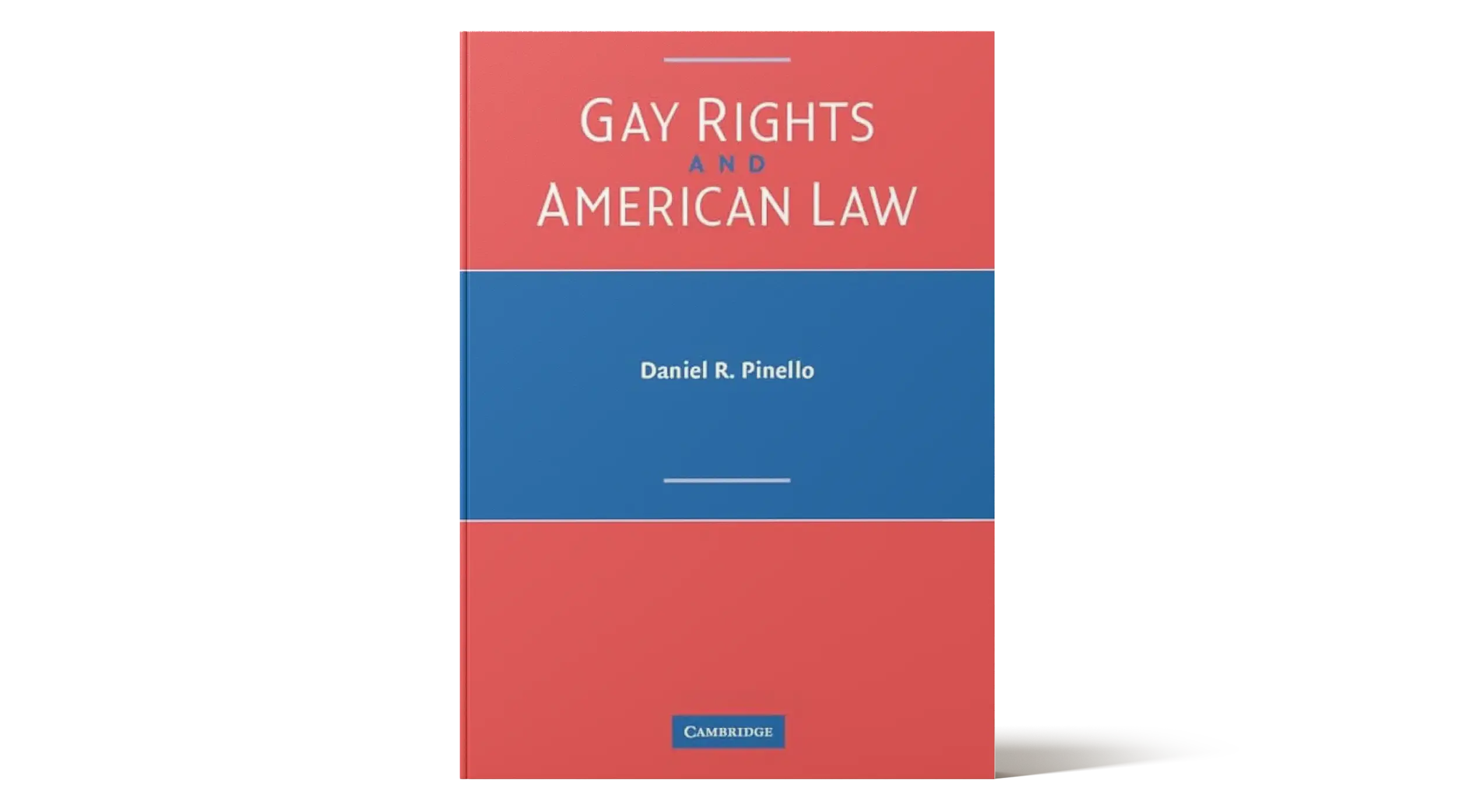The True Face of Super-DOMAs:
Stories from Georgia, Michigan, and Ohio
Daniel R. Pinello
August 2013
1. Joan and Linda lived together for 20 years. Joan was on the faculty of a Michigan public university and was promoted to full professor in 2004, the same year that Michigan voters approved a Super-DOMA. The next year, a drunk driver slammed into Joan’s car as she drove home from school. Joan was pronounced dead at the scene. The police promptly notified Linda about the crash, so she knew something had happened to Joan. But the authorities didn’t tell Linda that Joan was dead. The coroner’s office refused to recognize Linda as Joan’s family because of the Super-DOMA and insisted that just Joan’s biological relatives could be informed of her death.
Joan’s nearest blood relation was a brother in another state, who arrived at the Michigan coroner’s office five hours later. Only then did Linda learn that Joan had died. Moreover, the coroner wouldn’t release Joan’s body for Linda to have it moved to a funeral home. The brother alone had the right to dispose of Joan’s remains.
Furthermore, the 2004 constitutional amendment prevented Linda (who worked part-time because of disability) from receiving Joan’s pension at the university. Nor did Linda have legal standing to sue the drunk driver for Joan’s wrongful death. Linda was left destitute.
2. John and Dave have lived as a couple in suburban Atlanta for nine years. In 2007, John, 39, adopted then nine-year-old Bob. The adoption attorney said that a second-parent adoption of Bob by Dave, 35, was unavailable because of Georgia’s 2004 Super-DOMA. So the boy has John’s last name, which is different from Dave’s. John works full time, while Dave is a stay-at-home dad, with the principal responsibility to raise Bob. As a matter of Peach State constitutional law, however, not only is Dave a legal stranger to his life partner John, but Dave can never be Bob’s permanent legal guardian.
In 2009, Dave took eleven-year-old Bob to Houston to visit Dave’s parents. (Texas is another Super-DOMA state.) On the return trip to Georgia, airline personnel at the Houston airport noted the difference in last names between Dave and Bob, summoned the police, and suggested to the authorities that Dave had kidnapped Bob. The officers escorted Dave and Bob off their plane and questioned Dave “in front of God and everybody on that Texas concourse.” Dave was obliged to explain his sexual orientation to an officer and had to telephone John in Georgia. Fortunately, on the advice of counsel, Dave always carries notarized temporary guardianship papers whenever he travels with Bob. So the police ultimately let them proceed home. But in an interview, Dave, in tears, described the public accusation of abducting his own son (which charge was made in front of the child) as the most horrifying experience of his life.
3. From 2004 to 2009, Sue Doerfer was the Executive Director of the LGBT Community Center of Greater Cleveland. The year after Ohio’s Super-DOMA (known as “Issue One”) passed, Doerfer received a telephone call at the community center from the office of her family doctor. “Your partner’s here, and something’s really wrong. She may be having a stroke. You need to come by right now.” Doerfer left immediately for the doctor’s office, where she met and followed the ambulance taking her partner to a local Cleveland hospital. At the entrance to the emergency room, the admissions officer asked Doerfer what her relationship was to the patient. “‘I’m her partner!’ I blurted out,” Doerfer said. “I was terrified. It never occurred to me to lie about who I was.” “Sorry,” the admissions officer said, “You’re not the patient’s next of kin or other relative. So you can’t go in.” Panic stricken, Doerfer pulled out her cell phone to call a friend who worked at the hospital to see if she could help. But the ER has a rule against the use of cell phones, and hospital security guards escorted Doerfer out of the building.
Fortunately for Doerfer, the ambulance driver who drove the partner to the hospital took pity on Doerfer and snuck her into the ER through the ambulance bay. Once inside, everything was all right. “No one in the ER itself asked me who I was. But if they had, I would have said, ‘I’m her sister.’ And my partner didn’t have a stroke after all. Just a very bad migraine headache.”
This story is especially noteworthy because it occurred with one of the most visible and politically active gay people in northeast Ohio at the time. In fact, after leading Cleveland’s Community Center, Doerfer became Executive Director of Equality Ohio, the principal LGBT civil rights organization in the Buckeye State. So if the refusal of access to a partner in an emergency room befell someone like Doerfer, such overt denial of relationship recognition could certainly happen in a Super-DOMA state to any other lesbian or gay man, no matter how knowledgeable or well connected.
4. Richard and Tim met in 1990. Four years before, Tim purchased a home in Columbus. When the two decided to live together, Richard moved into Tim’s house. The couple painstakingly split all expenses 50-50, and over the next 12 years, worked hard and paid off the mortgage.
During estate planning in 1996, a lawyer advised the pair that adding Richard’s name to the deed would result in a gift tax on one-half of the fair market value of the property. So they decided not to change the deed. Both were in good health and expected a long life and retirement together.
In 2006, however, Tim died at 58. If the two were married under state law, or even if they had a civil union or domestic partnership, Richard’s taking title of the home under Tim’s will would not have been taxed pursuant to state inheritance laws. But Issue One required that the couple be treated as legal strangers to one another. As a result, the full market value of the property was included as part of Tim’s estate, and Richard was forced to write a check to the Treasurer of Franklin County for $34,000.
“Since 1990, we painted every wall and every ceiling in the home, and covered every floor, ourselves,” Richard, 57, declared in an interview. “We put our life’s blood in this house for nearly 17 years together. Although I didn’t make the down payment, I did pay half of well over 75 percent of the mortgage. And I can prove it, because we kept careful records. Even without such proof, though, there would’ve been no tax penalty if I were Tim’s wife or his legally recognized domestic partner. I also would’ve received his state pension.” Richard paused. “But the pension died with him, and I still had to ‘inherit’ my own home from Tim, like a cousin or nephew who never paid a penny on the mortgage or never sweat to improve and maintain the property.”
5. Oakland University is a public institution in the northern Detroit suburbs that provides employee housing near campus. Oakland faculty or administration members and their families can purchase homes in the designated area that have restrictive covenants limiting transfers of the properties to people affiliated with the school. Should the faculty member or administrator die, his or her spouse may continue to live in the house until the spouse’s death.
Emma, 62, is a tenured full professor at the University and has been a faculty member there for more than 25 years. After a year-long search for a home in the faculty housing, she and Betty, her partner of 15 years, made an offer on a house and secured a mortgage to finance it. Then Oakland informed the couple that, because of Michigan’s Super-DOMA, Betty would have to leave the home before the end of the calendar year in which Emma died, or otherwise Betty would be evicted. Since Emma is 15 years older than Betty, the survivorship limitation forced the pair to abandon their dream of moving to a new home.



